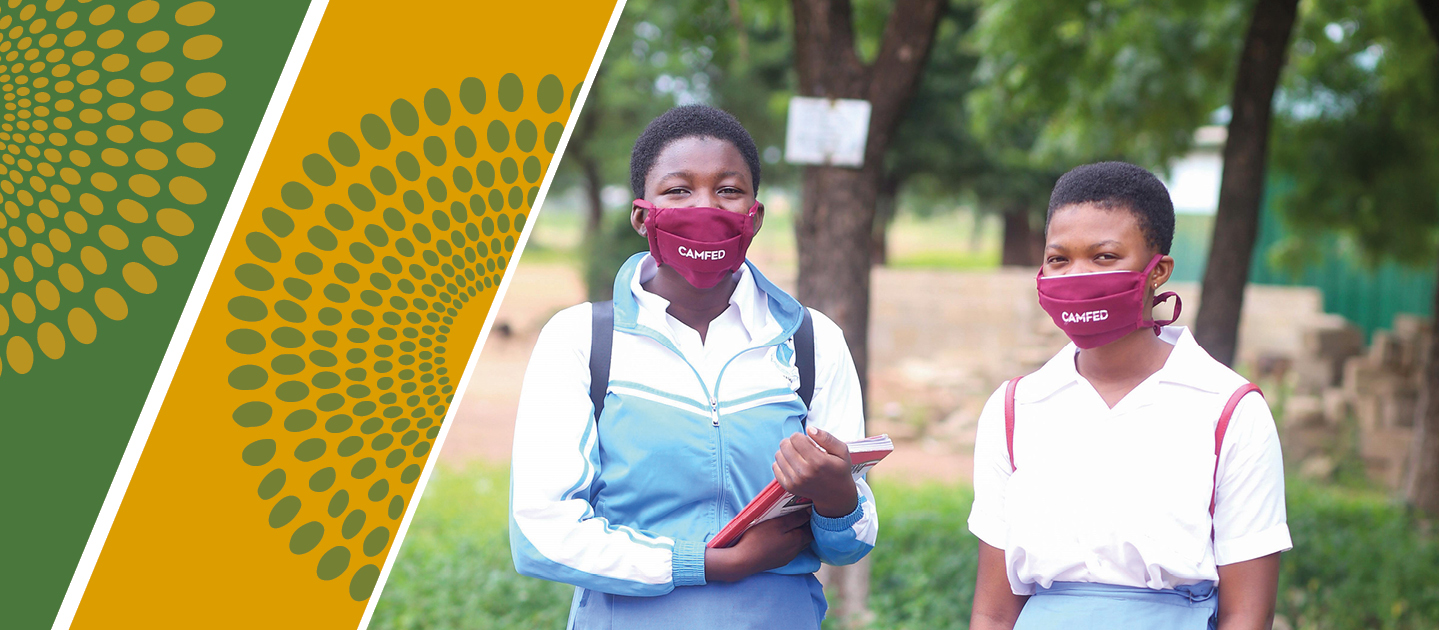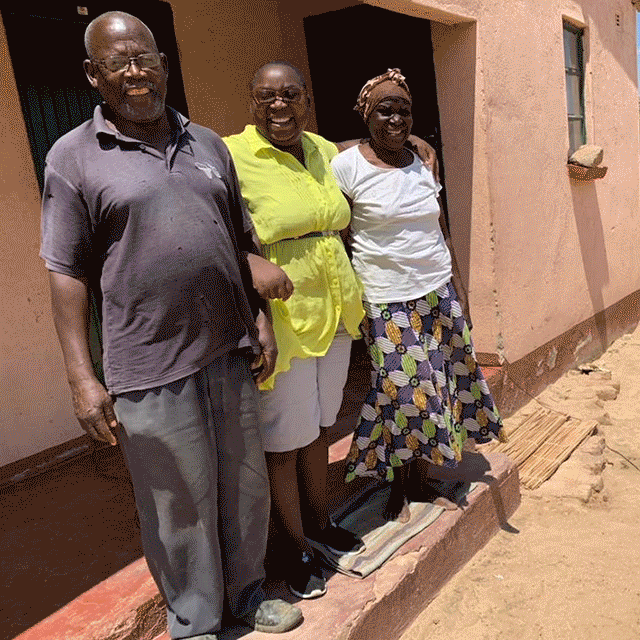
Earth Day 2021 - Education is Climate Action

For Earth Day (April 22), join us on Esnath’s cricket farm in Zimbabwe; meet Miriam, who is raising farm productivity while preventing soil erosion in rural Malawi, and read about the link between education and climate action.
By supporting girls to learn and thrive, CAMFED’s supporters are part of a powerful climate solution, led by young educated women in the CAMFED Association. Our leadership network is designed to cascade the knowledge and expertise grown in rural communities for the benefit of rural families. We work to ensure that those who are most vulnerable to (and least responsible for) climate shocks collectively develop and lead climate solution. Our young leaders address food insecurity while conserving resources, resulting in healthier families, which can, in turn, invest more money in education.
I’ve already trained 10 mothers in insect [sustainable protein] production. Each trainee will train four more. It’s going to create a network of insect farmers across the country. This comes from the power of educating one rural girl who has realized that her community needs her. Together we can address food insecurity. Once we have healthier families, we can invest more in education.
Esnath, CAMFED Association member, Zimbabwe, on BBC Radio 4
In the latest BBC Radio 4 podcast, Charlotte Ashton travels to rural Zimbabwe to meet CAMFED’s Esnath Divasoni, who accepted our UN Global Climate Action Award in 2019. Esnath brings to life the power of educating one rural girl, paying it forward in the community that raised her, and invites Charlotte to a lunch of crickets and sadza (the traditional cornmeal staple, similar to polenta). In last week’s LinkedIn Live discussion with UN Climate Change, Esnath described the realities of climate shocks in rural communities, and what educated women are doing to help farming families address hunger, conserve resources, and keep girls in school.

Join CAMFED’s Esnath and her parents on her insect farm in rural Zimbabwe via this BBC podcast. She trains fellow CAMFED Association members as climate-smart Agriculture Guides, who train hundreds more – as featured on the BBC’s climate podcast with Tom Heap.

Watch CAMFED’s Esnath Divasoni and Max Lohman from C40 Cities Finance Facility. Both represented UN Climate Action Award winning projects, and brought the Paris Climate Agreement to life.
I encourage farmers to focus on integrated management — a whole farm approach that is more sustainable — and to practice early planting and combining different crops. I teach mulching to conserve soil moisture and reduce evaporation, and I advocate for tree-planting to prevent soil erosion.
Miriam, CAMFED Association member, Malawi
In a recent Brookings Institution report, Christina Kwauk and Rebecca Winthrop outlined the huge potential of community-led climate solutions when closely linked to education systems. They gave the example of CAMFED’s climate-smart Agriculture Guide program, through which young women have already reached more than 10,000 rural community members through workshops, mentoring, and demonstration farms to help build resilience to climate shocks, drive up productivity, and improve nutrition and learning outcomes for school students.
Education, quite literally, saves lives. It’s the foundation for saving our precious planet.
Don’t miss any of our advocacy and action for girls’ education. Follow us on Twitter, Instagram, Facebook and LinkedIn.
